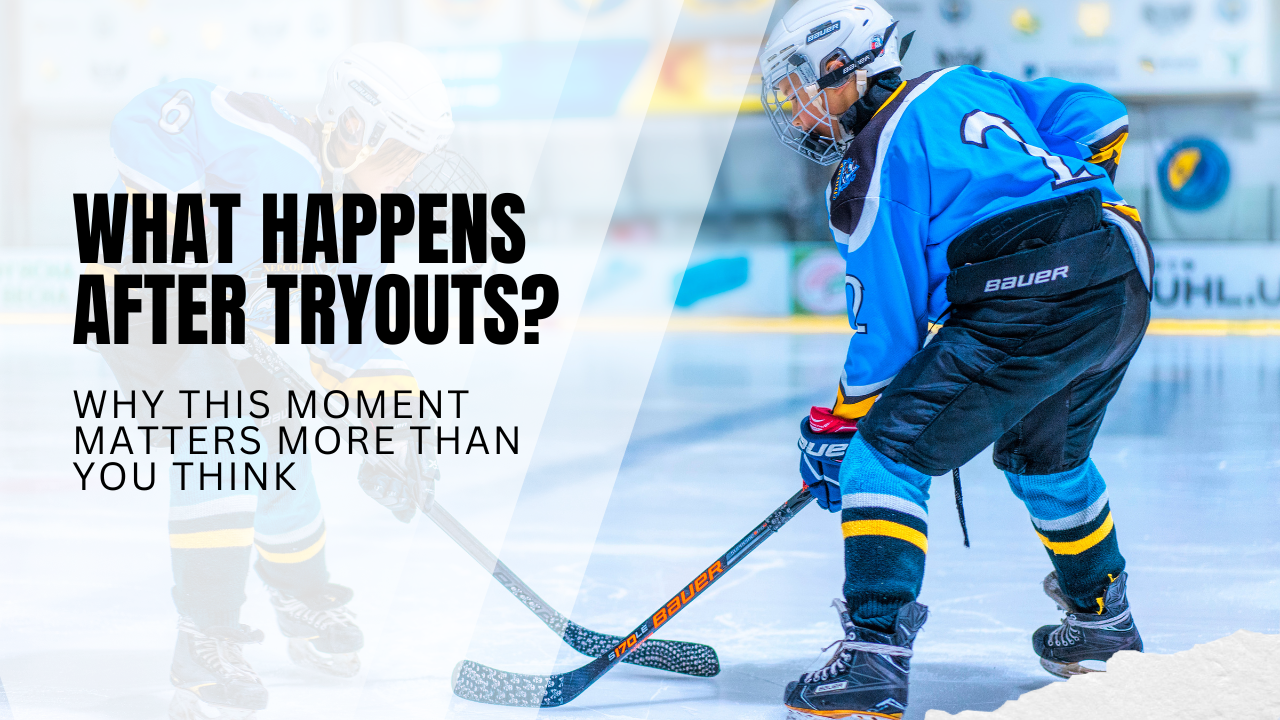
What Happens After Tryouts? Why This Moment Matters More Than You Think
Jul 13, 2025The list is posted.
The names are up.
The tryout is over.
And yet—this is when things often get harder for young athletes.
Whether your athlete made the team or didn’t, this post-tryout period can be an unexpected emotional turning point. As a mental performance coach, it’s one of the most common moments I see athletes start to struggle.
Let’s take a closer look at why—and what we can do about it.
Two Common Post-Tryout Struggles
- The “I Made It… And Now I’m Spiraling” Athlete
You’d think this would be the easiest outcome. They made the team! They should be celebrating, right?
But instead, I hear things like:
“What if I can’t live up to it?”
“Everyone’s watching me—I don’t want to mess up.”
“I feel like I have to prove I deserve to be here.”
This kind of internal pressure is heavy. Especially when it’s mixed with the excitement of a new team, unfamiliar dynamics, or higher expectations.
- The “I Didn’t Make It… So Now What?” Athlete
This is a deeper kind of hurt.
They worked hard. They hoped.
And now they’re left wondering:
“What’s wrong with me?”
“Should I even keep playing?”
“Will I ever get another shot?”
It’s not just the disappointment—it’s the loneliness of seeing others move forward while they feel stuck.
Why Mindset Work Is Crucial in This Moment
The transition right after tryouts is often overlooked. We move quickly to “next steps,” or brush off feelings with well-meaning encouragement like “You’ll get ’em next time.”
But the truth is—this moment matters.
How your athlete processes this experience will shape their mindset for the rest of the season (and possibly beyond).
It’s not just about how they play—it’s about how they handle pressure, disappointment, comparison, and self-worth.
These aren’t just sports lessons. These are life lessons.
What Can You Do as a Parent?
Start by making space for whatever feelings are present—without trying to fix them right away.
Ask open-ended questions like:
- “How are you feeling about the tryout?”
- “What’s something that felt good about your effort?”
- “What’s something you’d like to work on from here?”
And remember: supporting the mental game doesn’t have to be complicated—but it does require intention.
If you notice your athlete is stuck in self-doubt, feeling overwhelmed by pressure, or unsure what to do next, that’s a signal they may need deeper support.
This is why I’ve opened a few Plan + Pivot Post-Tryout Clarity Sessions for athletes and their parents who want a safe space to process, regroup, and plan forward.
The goal?
Not to sugarcoat.
Not to push harder.
But to help them pivot—with confidence, clarity, and calm.
Because it’s not just about what team they’re on.
It’s about who they become because of how they handle this moment.
One moment doesn’t define them. But how they respond to it? That’s where the real growth happens.
